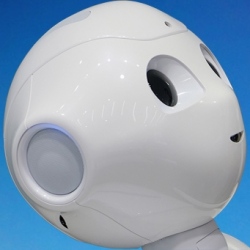
Robots and automation machines are now handling a lot of work that used to be done by humans. In San Francisco, where the robot revolution is moving a little faster than other parts of the country, robots could take on another human characteristic: they will be taxed.
City Supervisor Jane Kim is pushing for a “robot tax,” which business owners would have to pay when a robot takes over a job once done by a human. It’s an idea that Microsoft co-founder Bill Gates brought up earlier this year.
In an interview with Quartz, Gates suggested that a robot tax would slow the pace of automation, and give those who might be displaced by a digital worker a chance to train for another job. As he sees it, robots should be taxed the same as humans. So, if a machine replaces a factory worker who was making $50,000 a year, the robot tax would equal the amount the business and worker would have paid in taxes and social security.
Kim, who got the idea for the tax from that Quartz interview, is talking to tech leaders, public policy makers, and labor groups in San Francisco to determine how the tax might be implemented in San Francisco. The basic premise is that funds raised from the tax would be used to help displaced works or to develop some sort of base income initiative.
